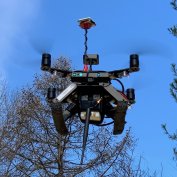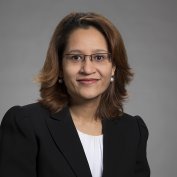Multiple PhD research assistant positions are available in MESA Lab for dedicated and motivated students. Research in MESA Lab is highly interdisciplinary and employ concepts from courses in ECE, CS and Math. Background in one of the areas in Wireless Communication, Signal Processing, Machine Learning, Autonomous Systems, Cyber-Physical Systems or Hardware (FPGA and/or Embedded Systems) Design is preferred in this position. If you are interested in pursuing a PhD, send an email with your CV, your specific interest in the projects of MESA Lab, and complete GRE score to Prof. Dola Saha or Prof. Aveek Dutta.
Join Us
Projects
SCISRS
SCISRS: Signal Cancellation using Intelligent Surfaces for Radio Astronomy Services: This NSF funded project investigates use of a reconfigurable intelligent surface (RIS) installed near a radio telescope to help mitigate radio frequency interference (RFI) from other users of the electromagnetic spectrum.
Relevant Publications: [Globecom 2022], [ICC 2023]
Collaborative RFI Cancellation for RAS
This NSF funded project seeks to enhance coexistence in shared frequency bands between wireless cellular networks and passive radio telescopes.
Relevant Publications: [DySPAN 2021], [TCCN], [ICC 2023]
Deep Learning for Wireless
This NSF funded CAREER project generalizes the architecture of a Deep Learning (DL) based wireless transceiver that will consistently operate with low error rate in all types of wireless channels, but especially outperform the state of the art in future xG channels. This project expands the understanding and applicability of deep learning (DL) for practical wireless transceivers in four fundamental areas: Reliability, Generality, Complexity and Adaptability. Overall, it is envisioned to achieve 3-5 orders of magnitude improvement in reliability across all types of channels and applications.
Relevant Publications: [TWC 2020], [VTC 2018], [COMSNETS 2017 ].
Terahertz Bands for Communication
In this Air Force Research Laboratory (AFRL) funded project, we are developing deep learning based models for transmitter, channel and the receiver in a way, that can associate the reason of distortion in the signals with a parameter (for example, hardware non-linearity, absorption loss, etc.).
Relevant Publications: [mmNets 2021], [ICC 2022], [Globecom 2021]
Cloud Radio Access Network (CRAN)
CHRONOS (Cloud based Hybrid RF-OpticalNetwork Over Synchronous Links) is a multi-node, heterogeneous, wideband, scalable, hybrid and synchronous Cloud RAN, specifically to support high throughput wireless access for emerging applications. Visit the CHRONOS Project Page for more detailed information.
Relevant Publications: [5G World Forum 2018]
Signals from the Drone
In this project, we use multi-modal analysis of wireless signals captured from the drone, which can be used for search and rescue missions, spectrum violation detection and electronic warfare.
Relevant Publications: [RFEye], [Hiper-V]
ML Generated Secured Waveform
In this project, we explore the capabilities of Deep Learning to generate secured waveforms for next generation wireless communication. We are investigating in cross-layer security techniques to merge classical cryptography with physical layer security. Generation and detection of LPI/LPD waveforms is one of the major thrusts of this project.
Relevant Publications: [Rand-OFDM], [Adversarial Generation], [IH 2012], [Encrypted-OFDM]
Distributed Ledger for Spectrum Access
We leverage the distributed consensus mechanism employed in Blockchain networks to capture the reputation of the sensors. Specifically, we define and analyze a detection mechanism to identify falsifying sensors using a distributed anomaly detection system and use the Blockchain to record the individual’s behavior. The reputation is then based on the combination of the difficulty level of the consensus method and the degree of falsehood in the reported sensor values.
Relevant Publications: [COMSNETS 2020], [DySPAN 2019], [TCCN 2019], [TWC 2015], [DySPAN 2018]
Spectrum Prediction & Network Coexistence
We are studying spectrum availability and network coexitence algorithms based on both spectrum sharing within the same frequency band like WiFi and LTE-U, but also across heterogeneous bands like mmWave. By employing either Federated Learning among peers or UE-based online learning to balance between exploration and exploitation or optimal edge algorithms, we are able to show significant gains in network throughut. Relevant Publications: [COMSNETS 2020], [5G-WF 2018], [DySPAN 2015 (Best Paper Award)], [SECON 2016]
Architectures for Hybrid Radio
To collaborate in cognitive IoT, two radios must agree on a common wavefrom. In this project we are developing formally correct semantics expressesd as an Ontology to describe the internal structures of a signal processing pipeline to learn and synthesize new components required for collaboration among heterogeneous processing platforms like ZynQ MPSoC.
Relevant Publications: [CHRONOS], [Hiper-V], [SRIF 2013], [ANCS 2010], [WiNTECH 2012]
PHY Aware Networking
A programmable physical layer opens up a gamut of features that can be utilized to design new or improve variety of higher layer functions. Our work has effectively levergaed the OFDM physical layer to implement channel-aware algorithms that spans adaptive video delivery, low-latency communications and ultiuser communications. This is an active area of research that cuts across other projects pursued within this group.
Relevant Publications: [SIGCOMM 2009], [INFOCOM 2009], [TMC 2013], [DySPAN 2011].
IoT Coexistence with LTE
In this project, we are working on IoT traffic prediction models using Deep Learning and its coexistence in presence of other LTE traffic. The spectrum is shared with LTE and dense deployment of IoT uses underlay communication. We are investigating in low power waveform design, MAC/PHY cross layer techniques, MU-MIMO operations as well as ICN based networking to provide a complete solution.
Relevant Publications: [MECOMM 2017], [INFOCOM 2017 DEMO, Video], [ MOBICOM Poster 2016], [INFOCOM WKSHP 2017]
Publication
Selected Publications
- RFEye in the Sky, IEEE TMC 2020, [pdf]
- Real-time Prediction of Non-stationary Wireless Channel, IEEE TWC 2020, [pdf]
- Learning from Peers at the Wireless Edge, IEEE COMSNETS 2020, [pdf]
- Learning Secured Modulation With Deep Adversarial Neural Networks, IEEE VTC 2020, [pdf]
- SenseChain: Blockchain based Reputation System for Distributed Spectrum Enforcement, IEEE DySPAN 2019, [pdf]
- Multi-agent Planning with Cardinality: Towards Autonomous Enforcement of Spectrum Policies, IEEE DySPAN 2018, [pdf]
- Realization of CDMA-based IoT Services with Shared Band Operation of LTE in 5G, in MECOMM Workshop ACM SIGCOMM 2017 [pdf]
- CDMA-based IoT Services with Shared Band Operation of LTE in 5G, Demo IEEE INFOCOM 2017 [pdf], [Demo Video]
- Practical MU-MIMO Experiments using SDRs, CNERT Workshop with IEEE INFOCOM 2017 [pdf]
- Predictive Analytics for Non-stationary V2I networks, in IEEE COMSNETS 2017 [pdf]
- Regret-Minimizing Exploration in HetNets with mmWave, in IEEE SECON 2016 [pdf]
- Cross-Layer MAC/PHY Protocol to Support IoT Traffic in 5G, Poster in ACM MOBICOM 2016 [pdf]
- A System Architecture to Aggregate Video Surveillance Data in Smart Cities, in IEEE GLOBECOM 2015[pdf]
- Coordinated dynamic spectrum management of LTE-U and Wi-Fi networks, in IEEE DySPAN 2015 [BEST PAPER] [pdf]
- Adaptive video streaming over whitespace: SVC for 3-Tiered spectrum sharing, in IEEE INFOCOM 2015 [pdf]
For list of all publications, visit Prof. Saha's Publication page and Prof. Dutta's Publication page.
Members
Hesham Mohammed, PhD Student
Shuvam Chakraborty, PhD Student
Xue Wei, PhD Student
Zhibin Zou, PhD Student
Tayyebeh Asgari Gashteroodkhani, PhD Student
Iresha Amarasekara, PhD Student
Nathaniel Rowe, PhD Student
Maqsood Abdul Careem, PhD Student
Joshua Cho, BS Student
Keith Zeto, MS Student
Jorge Gomez, BS Student
Ryan Abuasi, BS Student
Shalin Alfred, BS Student
Nimra Faheen, BS Student
Travis Cooper, BS Student
Andrew Boggio-Dandry, PhD Student
Visit Us
MESA Lab is located in ETEC Building in Uptown campus.
Visitor Parking:
GPS of nearest visitor parking lot is 42.6812948693223, -73.81514712378596. Check University Map for other Visitor lots.





